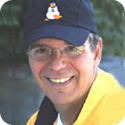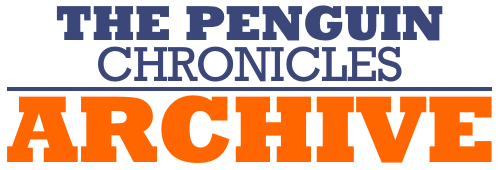Strength in numbers
 A race, a team, a van, and miles of self-reliance.
A race, a team, a van, and miles of self-reliance.
When a friend suggested running the Hood to Coast relay, a 195-mile team race from Mount Hood's summit to the Oregon coast, I was less than enthusiastic. I'd heard good things about the event, but wasn't convinced that I had the nerve or the patience to run three times over 36 hours and ride in a cramped van the rest of the time. I couldn't imagine the dynamics of six sleep-deprived runners trapped together in a van for that long.
I wasn't enthusiastic as I boarded the plane for Portland. I wasn't enthusiastic as we sat around eating dinner, devising our race strategy, or when we loaded the van with enough food to feed an infantry regiment. And I sure wasn't enthusiastic when we gathered in a cabin the night before the race.
Most of the team members were veterans of the 2002 Runner's World Alaska cruise. Thinking back, it seems to me that the idea of doing the relay came during a night that included more than a few adult beverages. It's funny how an idea that sounds great a year in the future suddenly turns into something awful you're doing tomorrow morning.
Our team captain assigned the rotation. She divided us into two teams of six, each team in their own van. The teams leapfrog past each other after one full rotation. For reasons that are unclear to me, even after asking her why nearly nonstop for 36 hours, I was runner number two in the first van, running the second, eighth, and 14th legs - the second most cumulative miles of the rotations. Leg two begins with a six-mile downhill that drops 1,500 feet; it's enough to make you wish you could exchange your quads for fresh ones. Leg eight is on part of the Portland Marathon course, and I still have no idea where leg 14 is.
The good news about being early in the rotation is that you finish your segment early. The bad news is you spend most of your time trying to get ready for your next leg - that, and trying to eat, sleep, and cheer for your teammates.
The 1,000 teams in the race start in waves of 20, every 15 minutes, for more than 12 hours. Teams predicting the slowest times start first. This meant we started being passed within the first hour and continued to get passed for the next 35 hours. There wasn't one leg where we weren't passed.
A weaker team would have gotten discouraged. But not us. With every mile, with every leg, we got stronger. With every hour we got closer to the finish - and closer to one another. We learned what made each of us laugh, what irritated us, what we liked to eat, and how our bodies functioned. (It turns out not much has changed since junior high school: Guys still think body noises are funny. Women don't.) We also learned that despite differences in gender, age, and more, we were all struggling to find something in our running that we couldn't find anywhere else in life.
Because we were in the first of our team's two vans, our race was over nearly five hours before our last teammate finished. When we spotted our final runner, we rushed to join her as she crossed the line. Rather than the sort of crushing emotions that I've experienced at the end of other long events, this was marked by an almost silent acceptance that not one of us had held the key to finishing.
I hadn't tried to take control of or even responsibility for anyone else's runs. If someone else was tired, I couldn't run for him or her. The most selfish act would have been to focus on everyone else and forget about myself. We each had to find the balance between taking care of ourselves and watching out for one another.
Once again, running has been my greatest teacher. Even on a relay team I'm only ever responsible to be me. I need only to live my life well and let others be free to do the same.
Waddle on, friends.

